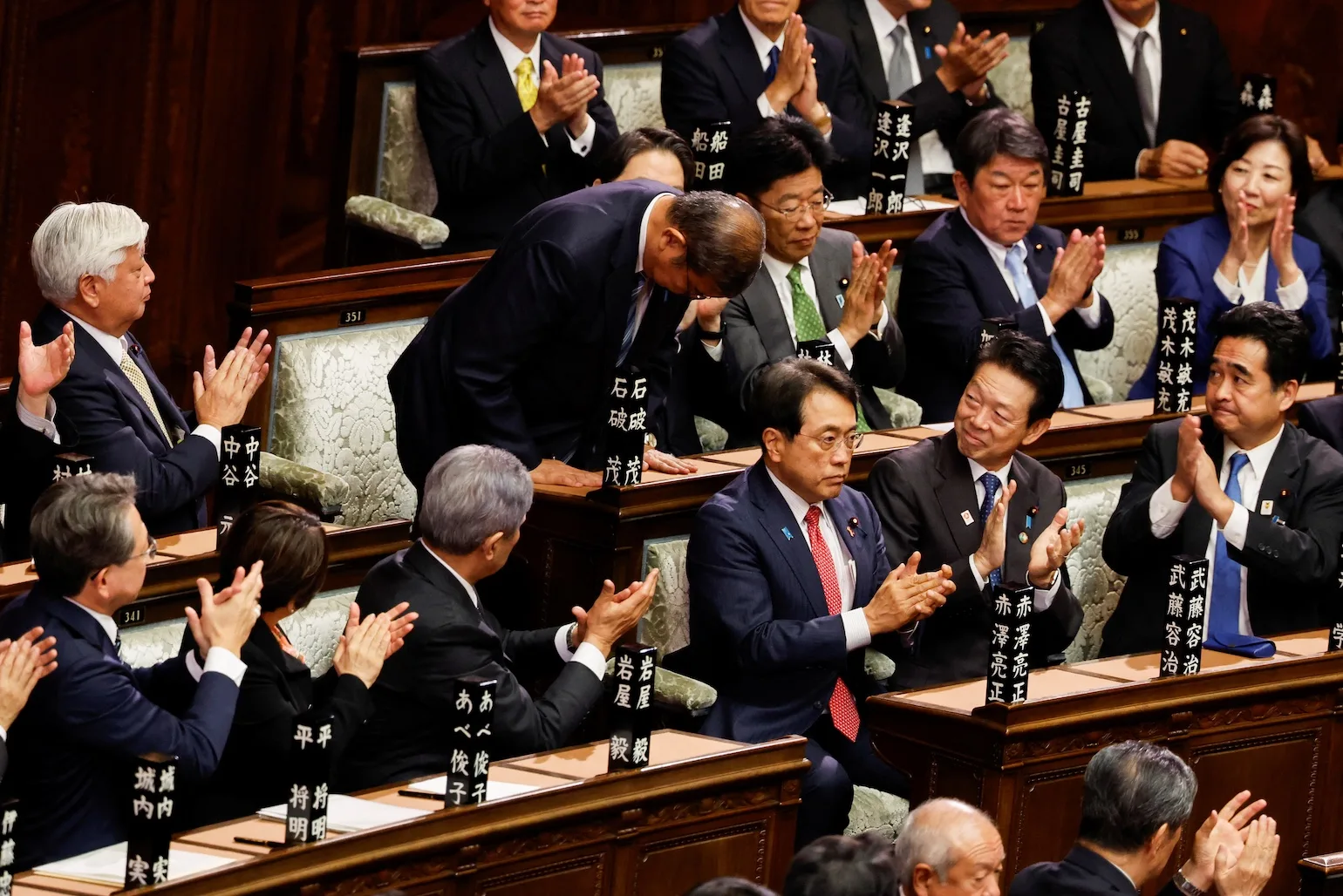Japanese Prime Minister Shigeru Ishiba has emerged unscathed from a critical vote in parliament, solidifying his position amidst political turbulence. This vote came at a time when Ishiba’s leadership was being challenged due to various domestic and international pressures that have tested his government’s resilience. The outcome has significant implications for the direction of Japan’s policies and its position on the global stage.
The Context Leading Up to the Vote
Ishiba’s tenure as Prime Minister has been marked by both progress and contention. Elected on a platform promising economic revitalization and stronger national security, he has faced mounting criticism over his handling of issues ranging from economic inequality to diplomatic relations with neighboring countries. The opposition, seizing on these vulnerabilities, aimed to destabilize his leadership by pushing for a no-confidence vote in parliament.
The vote followed weeks of heated debates and public demonstrations that underscored a deepening political divide. Key issues at the heart of the discontent included concerns over rising living costs, which have strained households across the country, and foreign policy moves that some viewed as too aggressive or misaligned with Japan’s traditional diplomatic posture.
Surviving the Challenge
Despite these challenges, Shigeru Ishiba managed to secure enough support from the ruling coalition and key allies to survive the vote. The outcome reflected his ability to maintain unity within his party and leverage strategic alliances to counteract dissenting voices. Political analysts noted that while some members of the ruling party had expressed reservations about his policies, they ultimately sided with him to prevent the risk of political instability.
In a post-vote statement, Ishiba expressed gratitude to his supporters and reaffirmed his commitment to addressing the concerns that fueled the vote. “This is not just a win for my administration, but a chance for us to refocus on the pressing needs of our citizens,” he said. He emphasized plans to double down on economic reforms and strengthen partnerships both within the region and globally.
Japanese Prime Minister Shigeru Ishiba
The Reaction and Public Sentiment
Public reaction to Ishiba’s victory was mixed. Supporters viewed it as a necessary step to maintain continuity in government, arguing that a leadership change at this juncture could have plunged the country into uncertainty. On the other hand, critics expressed disappointment, claiming the vote reflected political maneuvering rather than genuine efforts to address the public’s grievances.
“While the Prime Minister may have survived the vote, the issues that brought us to this point remain,” said one opposition member. This sentiment was echoed in various media commentaries, which highlighted that Shigeru Ishiba ’s government must act swiftly to bridge the gap between political promises and public expectations.
What Lies Ahead for Ishiba’s Administration
The next steps for Shigeru Ishiba’s administration are critical. Analysts believe that while he has managed to secure his position for now, the outcome of the vote serves as a wake-up call. Economic policy is expected to be a focal point, with more emphasis on measures that address inflation and promote job growth. Additionally, Ishiba’s team will likely review strategies for handling diplomatic relations, especially with key partners in the Asia-Pacific region.
Efforts to bolster support will also involve outreach initiatives aimed at rebuilding trust with disillusioned voters. This could include town hall meetings, transparent communication on policy shifts, and collaborations with local leaders to create targeted economic and social programs.
Strengthening Alliances
A notable aspect of Ishiba’s leadership that played a role in his survival is his commitment to strengthening international alliances. His policies have emphasized Japan’s strategic positioning amid global power shifts, especially concerning trade and security. Moving forward, Shigeru Ishiba is expected to continue prioritizing partnerships that bolster Japan’s economic and defense posture.
The Prime Minister’s ability to navigate these complex landscapes will be crucial in determining whether he can transform this narrow victory into long-term stability for his administration. Political observers will watch closely to see how Ishiba and his team respond to both domestic challenges and external geopolitical dynamics.
Conclusion
Prime Minister Shigeru Ishiba Ishiba’s victory in the parliamentary vote marks a significant moment in his political career and for the future of his administration. While he has managed to secure his leadership for now, the road ahead is fraught with challenges that require decisive action and a renewed focus on public engagement. How Ishiba handles this critical period will determine not only his legacy but also Japan’s trajectory in an increasingly complex world.
Source: SABC
In other news – Sello Maake kaNcube and Pearl Announce end of Their Marriage
Veteran South African actor Sello Maake kaNcube and his wife, Pearl, have reportedly brought their marriage to an end, marking the conclusion of what was once viewed as a union rooted in love and partnership.
The couple, who shared their journey publicly, had captivated fans and admirers with their story, which combined Sello’s storied acting career and Pearl’s supportive role by his side. Their split, now making waves in the media, has sparked conversations about the challenges couples face, even when love appears strong. Read more



